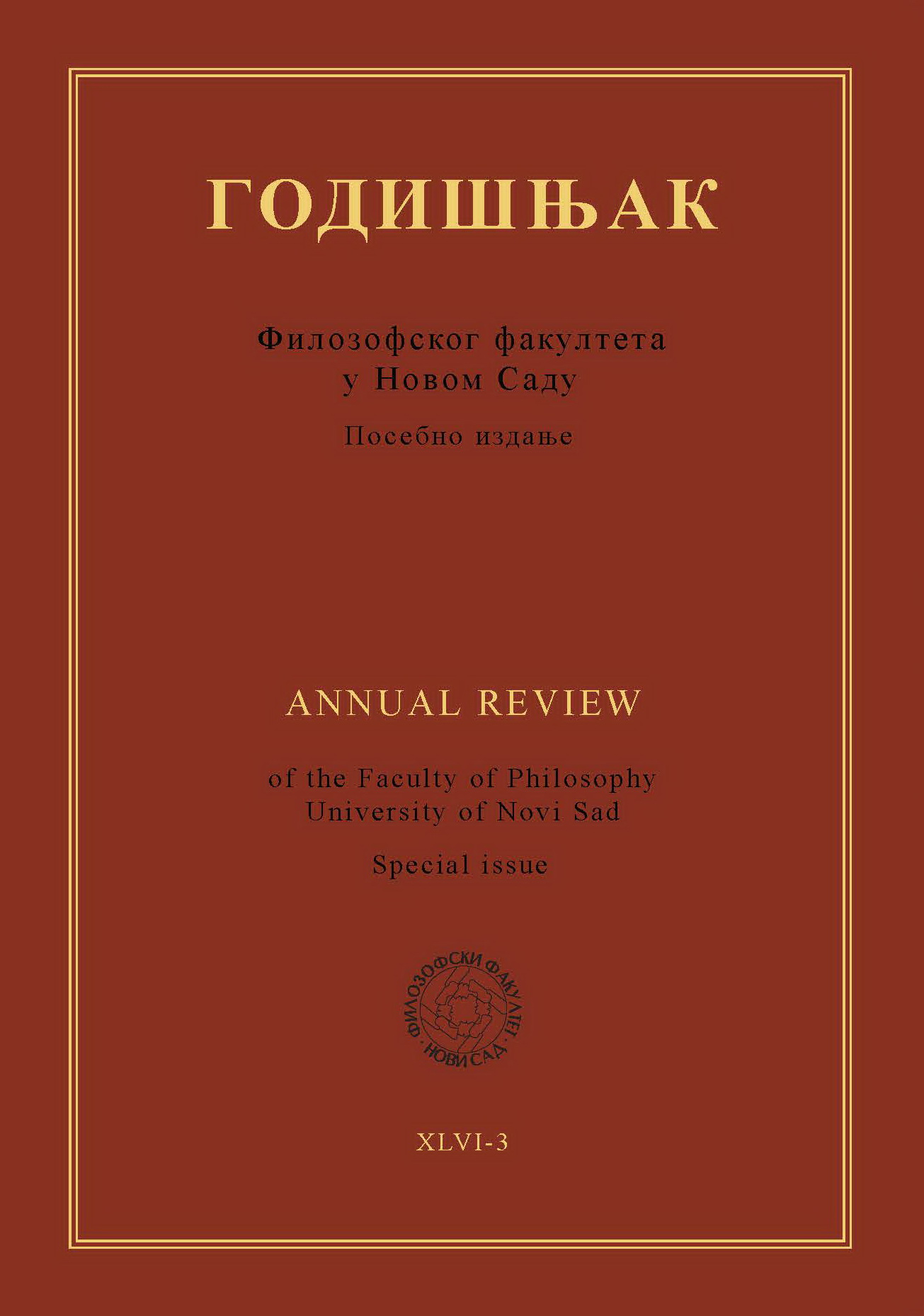ALTERNATIVE NAMES OF THE FEMALE SEXUAL ORGAN IN FRENCH AND SERBIAN: LEXICO-SEMANTIC ASPECT
Main Article Content
Abstract
This article is an attempt to provide an analysis of alternative names of the female sexual organ in French and Serbian with the aim to show all the similarities and differences that occur at the lexico-semantic level. Starting from the postulates of semantic and conceptual analyses as well as from Guiraud’s (1995) classification of obscene lexical units, our corpus comprises forms of polysemy that induce the meaning of alternative names (metaphorical relations based on form, function, color and schemes of collective expression; metonymic relations based on part vs. all) and the types of conceptual metaphors based on which the female sexual organ is conceptualized as a building, a place, an animal, a plant or a geographic space.
The corpus of our research has been compiled based on the French and Serbian dictionaries of obscene words by Pierre Guiraud (1995), Alfred Delvau (1997), Robert Édouard (2004), Danko Šipka (2011), Petrit Imami (2007), as well as the dictionaries of slang by Abdelkarim Tengour (2013), Dragoslav Andrić (1976) and Borivoje Gerzić (2010).
Downloads
Article Details

This work is licensed under a Creative Commons Attribution-ShareAlike 4.0 International License.
References
Andrić, D. (1976). Rečnik žargona. Beograd : BIGZ (Андрић, Д. (1976). Речник жаргона. Београд : БИГЗ.)
Delvau, A. (1997). Dictionnaire érotique moderne. Paris : Domaine français.
Édouard, R. 1983. Dictionnaire des injures. Paris : Sand et Tchou.
Gortan-Premk, D. (2004). Polisemija i organizacija leksičkog sistema u srpskom jeziku. Beograd : Zavod za udžbenike i nastavna sredstva. (Гортан-Премк, Д. (2004). Полисемија и организација лексичког система у српском језику. Београд : Завод за уџбенике и наставна средства.)
Gerzić, B. (2012). Rečnik srpskog žargona. Beograd : SA.
Guiraud, P. (1975). Les gros mots. Paris : Presse universitaire de France.
Guiraud, P. (1978). La sémiologie de la sexualité. Paris : Payot.
Guiraud, P. (1995). Dictionnaire érotique. Paris : Grand Bibliothèque Payot.
Imami, P. (2007). Beogradski frajerski rečnik. Beograd : NNK International.
Jovanović, I. (2019). Upotreba i značenje opscene leksike u srpskim novokomponovanim pesmama. In : Marković, J. (ed.) (2019). Opscena i druga kolokvijalna leksika u srpskom i makedonskom jeziku. Niš : Filozofski fakultet. 153 – 176. (Јовановић, И. (2019). Употреба и значење опсцене лексике у српским новокомпонованим песмама. In : Марковић, Ј. (ed.) (2019). Опсцена и друга колоквијална лексика у српском и македонском језику. Ниш : Филозофски факултет. 153 – 176.)
Klikovac, D. (2004). Metafore u mišljenju i jeziku. Beograd : Biblioteka XX vek.
Kovačević, M. (1999). Stilistika i gramatika stilskih figura. Kragujevac : Kantakuzin. (Ковачевић, М. (1999). Стилистика и граматика стилских фигура. Крагујевац : Кантакузин.)
Lagail, A.S. (1903). Les Paradis charnels ou Le divin bréviaire des amants. Paris : Priape ville.
Lakoff, G.–Johnson, M. (1980). Metaphors We live by. Chicago : University of Chicago Press.
Le Petit Larousse (2010). Paris : Larousse.
Popović, M. (2009). Leksička struktura francuskog jezika: morfologija i semantika. Beograd : Zavod za udžbenike i nastavna sredstva. (Поповић, М. (2009). Лексичка структура француског језика: морфологија и семантика. Београд : Завод за уџбенике и наставна средства.)
Rey, A. (2006). Dictionnaire historique de la langue française, t. 1-3, Paris : Le Robert.
Stanković, S. (2012). Iz kontrastivne analize jezika: problemi, rezultati, klasifikacija i primena. Philologia Mediana, 4, 381–391. (Станковић, С. (2012). Из контрастивне анализе језика: проблеми, резултати, класификација и примена. Philologia Mediana, 4, 381–391.)
Tamba-Metz, I. (2012). La Sémantique. Paris : PUF.
Tengour, A. (2013). Tout l’argot des banlieues. Le dictionnaire de la zone. Paris : Opportun.
Touratier, Ch. (2010). La Sémantique. Paris : Armand Colin.
Ullmann, S. (1952). Précis de sémantique française. Berne : Francke.
Šipka, D. (2011). Rečnik opscenih reči i izraza. Novi Sad : Prometej. (Шипка, Д. (2011). Речник опсцених речи и израза. Нови Сад : Прометеј.)




